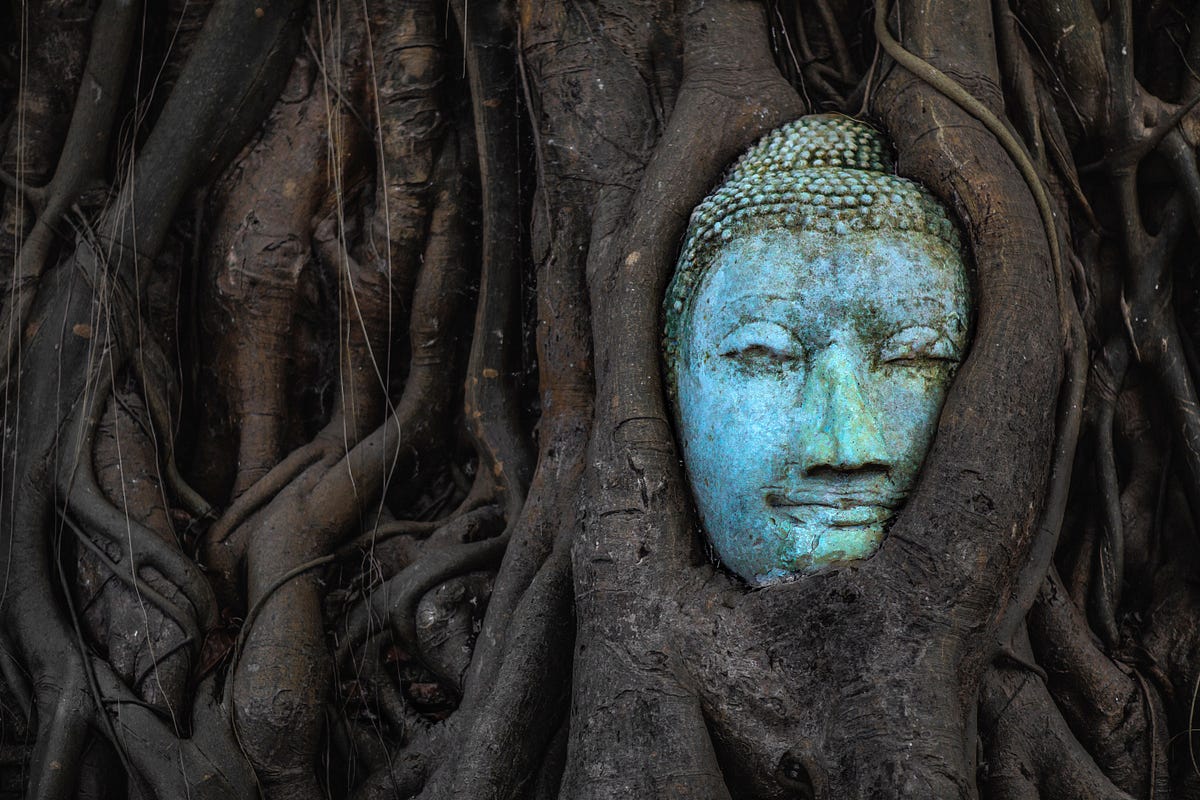
Given to you freely, after much failure.
The Dalai Lama says that compared to Ancient Indian psychology, Western psychology is kindergarten.
What does that mean for us, who pick up a book or watch a Youtube video about meditation and then decide to commit to it?
We realize we’re in way over our heads.
Side effects of ‘the dark side of mindfulness’ can include traumatic memories resurfacing, rushes of anxiety, and impulses toward depression.
Ironically, everything we wanted to avoid by meditating.
That’s why you need to upgrade your arsenal of tools from what the consumerist ‘mindfulness industry’ will have you believing in.
Don’t stop the operation when pus is gushing out.
This may seem counter-intuitive.
You try simply being, and what happens next is far from the peace you expect. Your mind unravels its suppressed vomit.
Discomfort, miserable energy flows, feelings of being crushed, intense anger — you name it.
And you want to stop. You want to take it easy; watch a movie, go out with friends. Great!
But realize you’re in a sensitive state and whatever your mind is experiencing will be projected onto the external world, almost immediately.
That means you’re infinitely more susceptible to multiplying whatever side effect you were experiencing, rather than soothing it.
Sometimes you need to keep going, less intensively, and let the psyche’s vomit come out while you detach yourself from it.
Then realize how illusory and temporary these mental movements are.
Realize your judgements about the world and its people come from this space of impermanent mental fabrications, not reality.
Otherwise, quitting meditation cold turkey is like running away from the shower and into a sewer — simply because you got scared by the dirt washing off.
Renew your reasons for sitting with yourself.
Something big happens when you learn the ropes of meditation — more or less knowing what to do whether the process is going good or bad.
Your mind becomes more purified than you thought possible.
And for a world that runs on grasping desire, intense illusion, and cutthroat competition, sometimes purity is less useful than sheer intensity.
This ties in to a life lesson that most of us learn to late.
Your ‘passion’ needs to be motivated too. It needs to be disciplined, fed, supported, ignited multiple times a day with affirmations, good influences, and practice. Even if you’re a genius.
Meditation makes you realize that to engage in any endeavor consistently, you need to feed the root of that action.
Intention.
For meditation practice itself, you have to constantly remind yourself powerfully enough why you want to develop this inner clarity.
I’ve seen too many people quit out of laziness or distraction, due to missing this essential ingredient.
Never cling to the dread.
In one of the greatest meditation manuals ever written, a Tibetan sage named Dudjom Lingpa describes the most common side effect of staring at your mind.
Intense, un-explainable fear. With no referent or object that’s clearly causing it.
You meditate and just feel a rush of existential anxiety.
“What on Earth are you doing with your time? Is your life really being lived the way it should?”
Of course, there is no clear answer or thing to blame. Just a vague feeling of worry, anxiousness, and discomfort.
When you know there is nothing directly causing it, you can rest assured that the mediation is working. There’s no need to make a life decision from this place of inner disruption.
You just need to let it pass, as all emotions, memories, thoughts, and impulses inevitably do!
Learn to loosen your grip.
There are many things we in modern ‘civilization’ are simply not capable of anymore.
Weavers cannot produce the kind of cloth the ancient world was renowned for. Artists are not surpassing Michelangelo or Beethoven.
That’s because the pace of life has changed. We are frantically grasping from one thing to another, always trying to ‘accomplish.’
But in meditation, sometimes you need to let things unfold on their own. Unravelling our tension, we dissolve our ordinary selves to find our essence deeper within.
Renowned retreat master and Buddhist scholar Alan Wallace says that 90% of problems in meditation come from people trying to work too hard.
Relaxation is not the goal of meditation. It is the basis for success in it.
All the insight, stability, and virtue that follow have their basis on a mind ready to spring into action, not so tense it can’t move.
This is not a skill like most others.
This is an inner art; a paradigm transformation meant to uplift your perspectives, one after another, until there is nothing left.
For that to happen, you need new skills — and to start, you need to master the four just mentioned:
Keep going, don’t ever totally quit! Feed the inner fire! Let the fear escape! Relax if you want to expand yourself!
Though easy to write (and read) about, these can take a lifetime to master.
I wish you the best in your journey toward a more grounded, abundant, and loving existence.
Disclaimer: The above information is not intended to substitute for professional medical advice from a psychologist; this article is meant for those with a strong baseline of mental health. For those carrying deep traumas, there are risks, as meditation often dredges the subconscious. The close guidance of a truly qualified teacher is essential, potentially combined with effective forms of therapy.